With fixture release day just a fortnight away, City fans will be eager to get planning their season – with new opponents, new stadiums and new cities to visit. We’re taking a look at the seven new teams who we will be facing in League One next season.
Next up is Birmingham City, who were relegated from the Championship on the final day of last season which means they will be playing in the third tier for the first time in 30 years. Despite winning 1-0 at home to Norwich City, wins for all their relegation rivals meant they were unable to catch up.
A Brief History
Adapted from bcfc.com/more/club/history
Founded in 1875 as Small Heath Alliance, in acknowledgement to the area in which the Club was born, professional status was obtained within a decade and entry to the newly formed Second Division granted in 1892.
A first league title was delivered to Muntz Street - the Club’s former ground - that very season as the team scored 90 times in just 22 matches, but were denied promotion via a ‘test match’ system they would overcome 12 months later.
In 1905, the Club’s name was changed to Birmingham and a year on there were further sizeable movements as a relocation to St. Andrew’s was completed in time for a Boxing Day visit of Middlesbrough.
Their first major honour came during 1963’s League Cup final. Facing their Second City rivals over two legs, a Blues side managed by legendary former goalkeeper Gil Merrick ran out 3-1 aggregate winners.
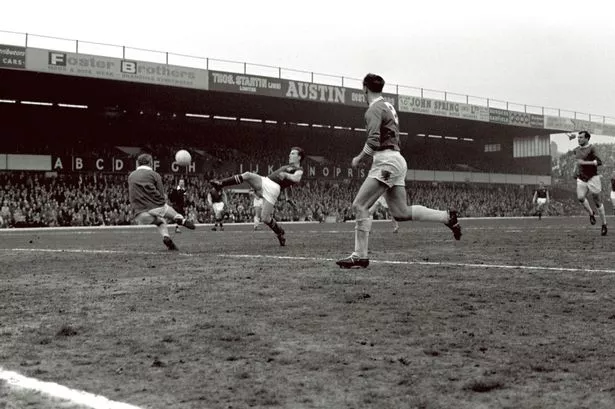
Promotion, relegation, promotion and then two demotions in three years saw Blues consigned to the third division for the first time in their history in 1989/90, but were promoted after two seasons back to the second tier.
On the up, sights were set on the newly formed Premiership with Blues mounting a quartet of assaults on promotion via the end of season play-offs in a St. Andrew’s that had undergone major redevelopments to become recognisable as the stadium is known today. 2002 saw them reach the Premiership, as it was then known.
They spent three seasons in the top flight before being relegated. Although the fourth campaign ended in a return to the Championship, an instant return was secured under Steve Bruce before Alex McLeish repeated the trick in 2009.
The Scotsman followed this up by achieving the Club’s highest league finish for over half a century. Blues then backed up this statement with another one that leaves the class of 2010/11 immortalised. On Sunday 27 February 2011, they toppled hot-favourites Arsenal to win the Carling Cup and secure their second major trophy at Wembley Stadium in front of more than 30,000 Bluenoses. European football followed, with a win over Club Brugge the most memorable win away from home.
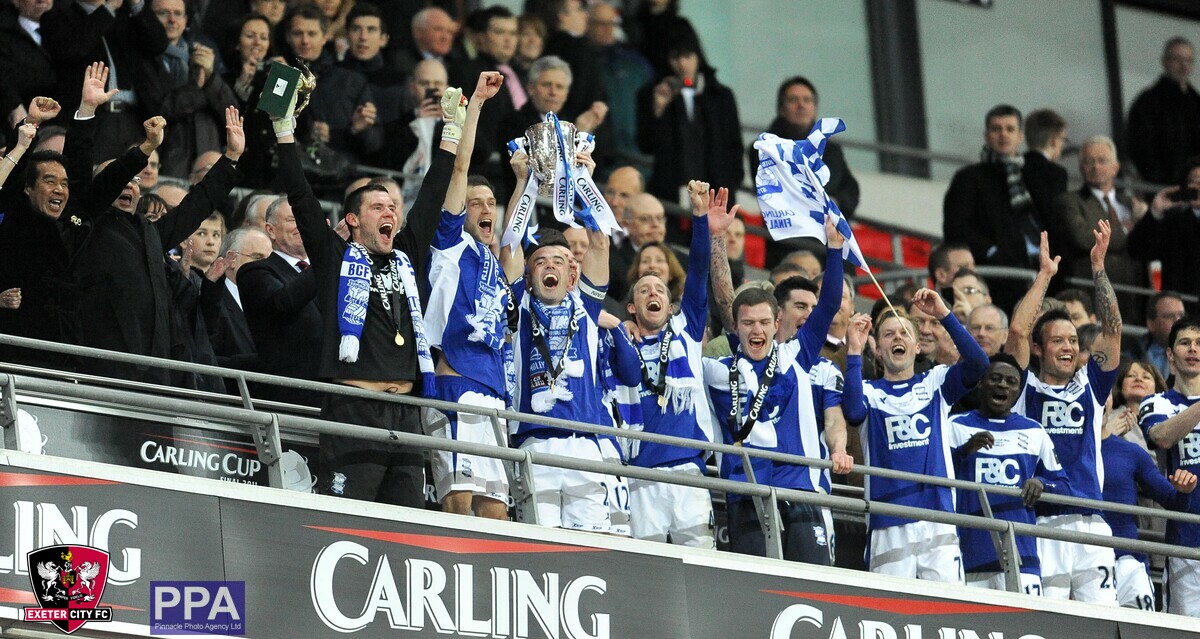
Under John Eustace, the Men's First Team recorded their highest points tally for six seasons in 2022/23, Then, in the October, following Eustace's departure, Wayne Rooney was appointed Men's First Team Manager.
The 120-time England international's time only lasted until New Year's Day and he was replaced by Tony Mowbray, who won four of his eight matches at the helm before taking a formal medical leave of absence, leaving Assistant Manager, Mark Venus, in temporary charge.
Venus was replaced by the March by Interim Manager, Gary Rowett, but despite him claiming three wins in eight games, Blues suffered relegation to Sky Bet League One for the first time in 30 years on the final day of the season.
The Manager
Chris Davies was appointed as the new head coach on 7 June as a new era begins in B9 under the ownership group which includes NFL legend Tom Brady as a minority shareholder.
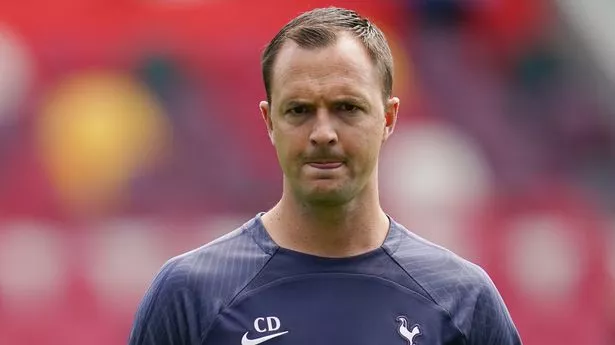
Davies’ last role was assistant manager to Ange Postecoglou at Tottenham Hotspur, but had also followed Brendan Rogers as no.2 at Leicester City and Celtic. This is his first senior management role.
The Stadium
St Andrews, now under the official name of ‘St Andrews @ Knighthead Park’ to reflect the new ownership has a capacity of just under 30,000 and is located in the Bordesley area of the city.
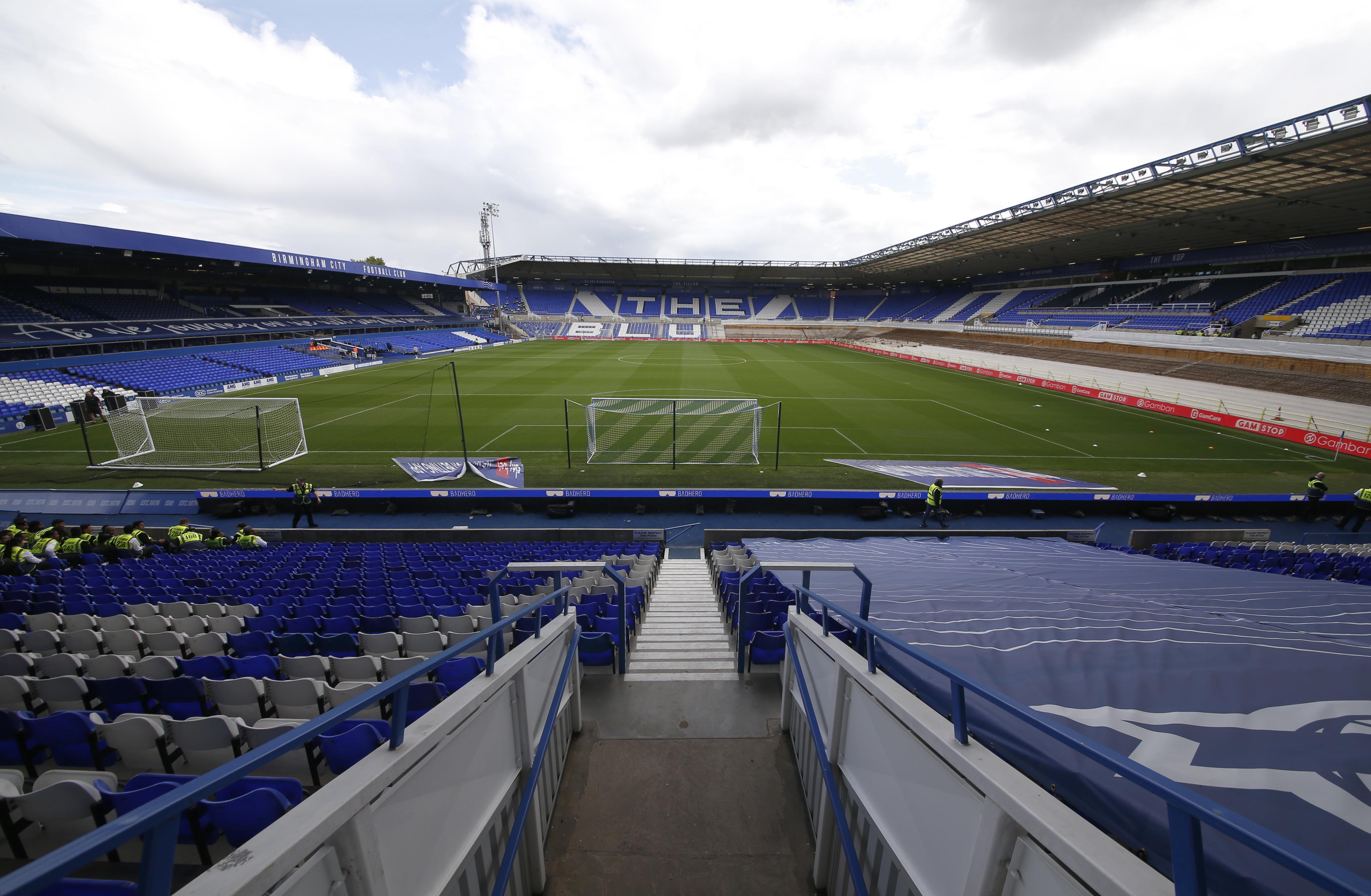
The ground comprises of four stands; The Main Stand, the Kop, the Tilton End and the Gil Merrick Stand. The latter of these is where the away fans are housed, in one half of the stand.
Head To Head Record
The Blues and the Grecians have met eleven times in all competitions, though the last was in 1999, when Birmingham triumphed 2-1 in the League Cup at St James Park. The Grecians have won three, drawn two and lost six.
The first meeting was a game in the same competition in 1979 – a 2-1 win for Exeter that time around.
Biggest Birmingham win: 4-0 (1990/91- League Cup)
Biggest Exeter win: 4-1 (1992/93 - League Cup)
Previous Fixture
In a two-legged first round League Cup tie, Birmingham ran out overall 5-1 winners. The second leg was a 2-1 win for the Blues.
A Jon Richardson own goal and a brilliant strike from Martin O’Connor put the tie out of reach for the Grecians, but Barry McConnell’s penalty did mean that City racked up a goal at least.
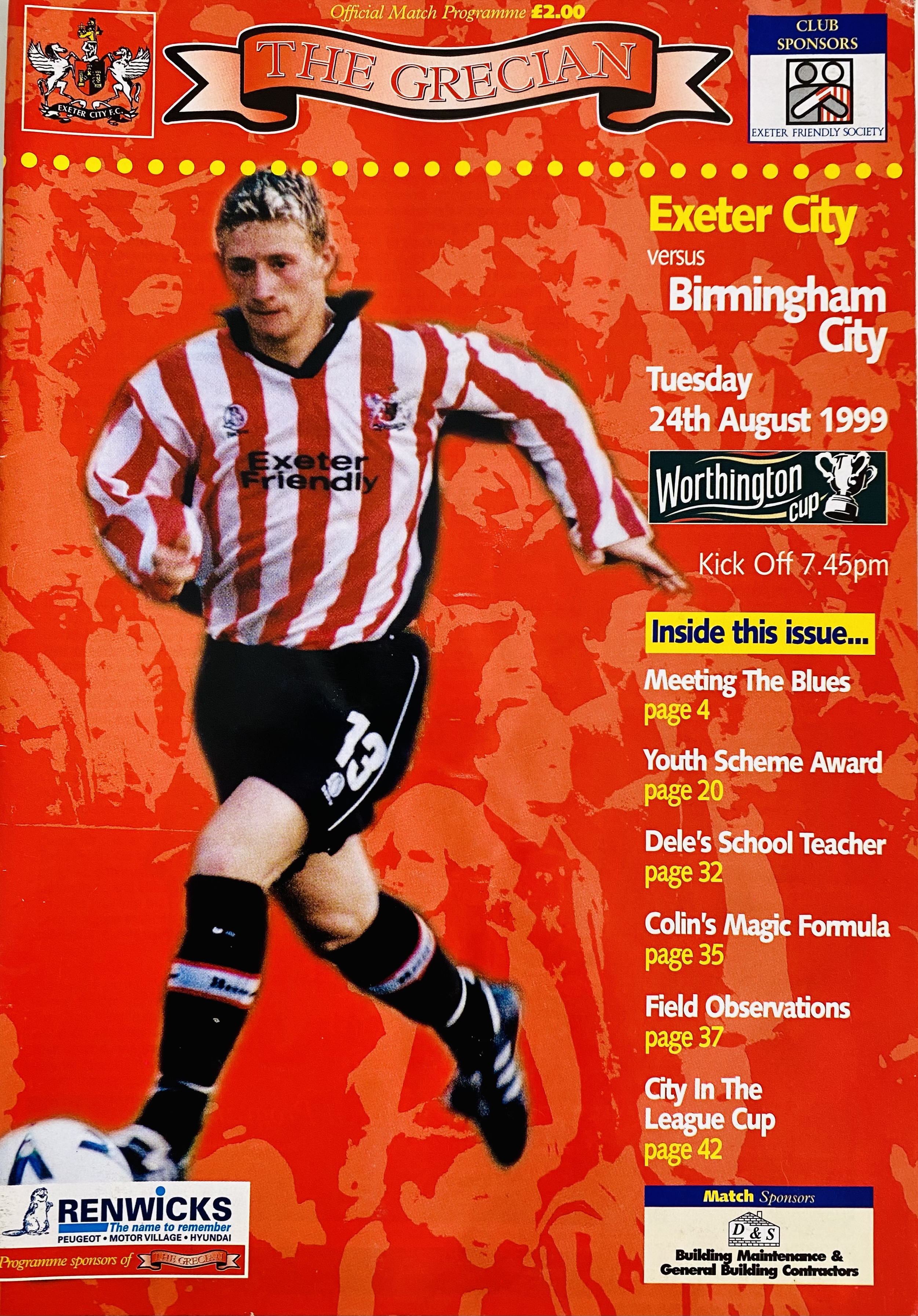
Played for Both
While Exeter City and Birmingham have spent most of their histories in different divisions, a number of players have played for both. Most recently, One or Our Own Jay Stansfield spent last season on loan at the Blues, bagging their Fans’ Player of the Season Award. Jonathan Grounds is another notable name, while further back, former City boss John Newman, who was a Grecians player between 1967-71, played for Birmingham between 1951-57.
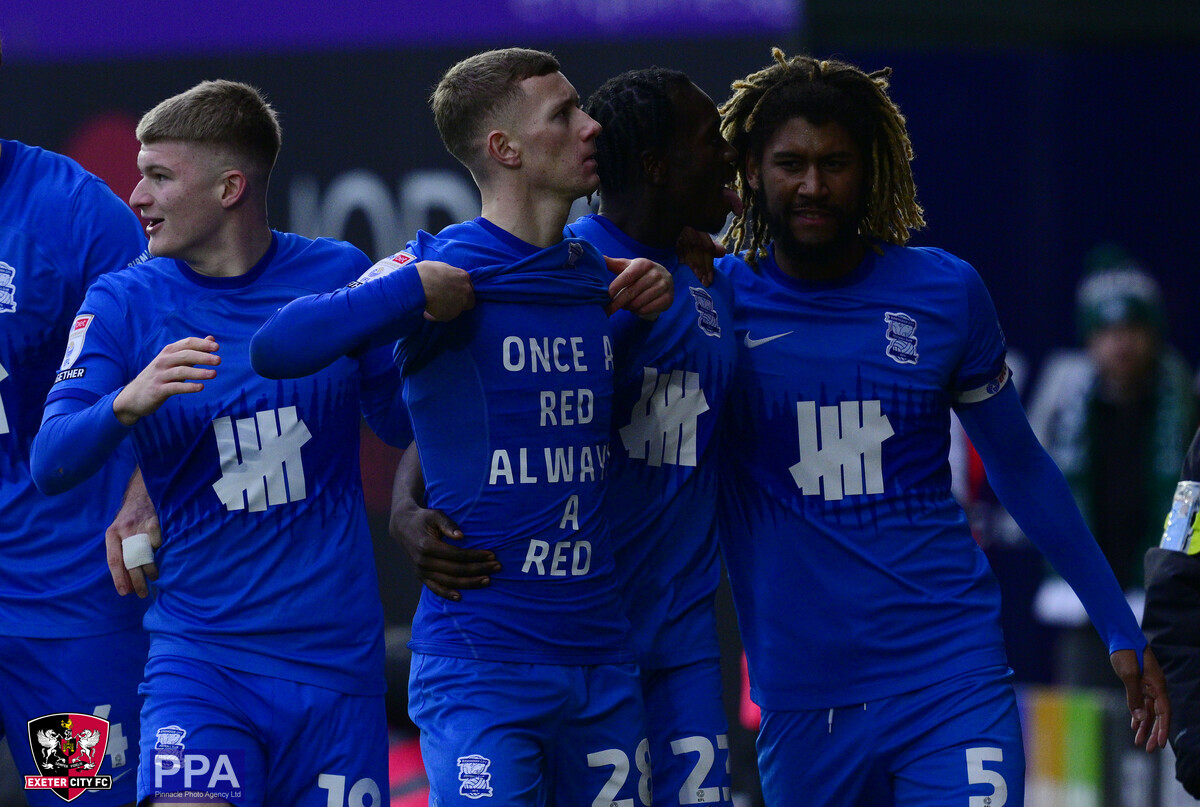
Scott Hiley, Clinton Morrison, Kevin Miller and Noel Blake are also just some of the names to turn out for both.
Did You Know?
St Andrew’s was the venue for the first ever use of a penalty shoot-out to determine the winner of an FA Cup match. Between 1970 and 1974, losing semi-finalists had to play for third place, with Blues beating Stoke City 4-3 on spot-kicks after a 0-0 draw in the 1971-72 competition.